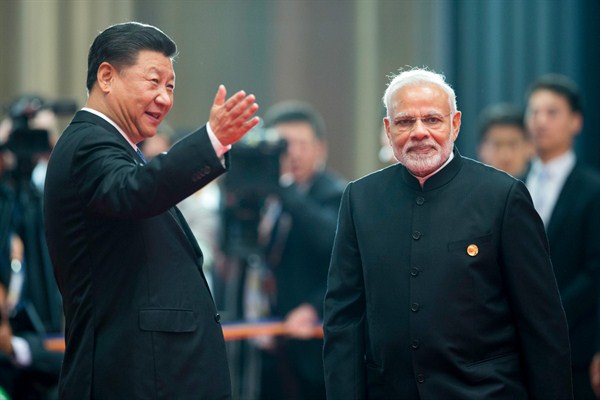It’s too early to say what India’s breach of the status quo in Kashmir will mean for long-term stability in South Asia. There are, of course, many fears of where revoking the semiautonomous status of Jammu and Kashmir could lead—from another retaliatory insurgency by militants in Kashmir backed by Pakistan, or worse still a destabilizing war between the two nuclear-armed rivals. Ultimately, though, it is China—not India or Pakistan—that will likely tip the balance in a region teetering yet again on the brink.
Indian Prime Minister Narendra Modi and his Hindu nationalist Bharatiya Janata Party view downgrading Kashmir’s status from a state in India to a union territory directly governed by New Delhi as a decisive blow to Pakistan’s claims over the disputed territory. But everyone stands to lose if regional tensions escalate further, starting with the 8 million residents of the Kashmir Valley now living under a total Indian security lockdown and communications blackout. China, more than any other player in this dangerous game of Risk, seems to understand that best.
Clashes between India and Pakistan over the Line of Control in Kashmir, the de facto border between Indian- and Pakistan-administered territories, have been so frequent that it is sometimes easy to overlook China’s role elsewhere in the region. But Beijing also has competing claims over parts of Kashmir and has contributed to long-running frictions. In recent years, however, it is the uneasy semi-détente between China and India over the Line of Actual Control—which separates Chinese-controlled territory from Indian-administered Kashmir—and the so-called McMahon Line on Kashmir’s northerly flank that has kept India-Pakistan tensions in check.

